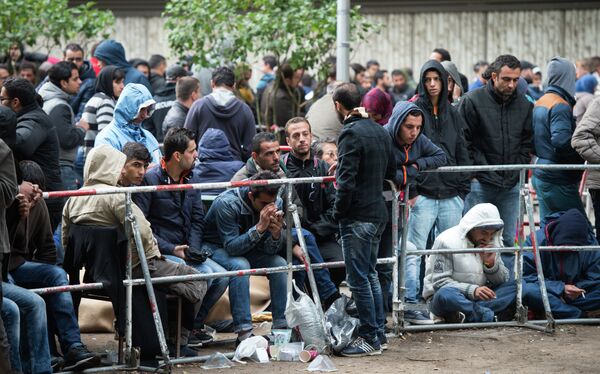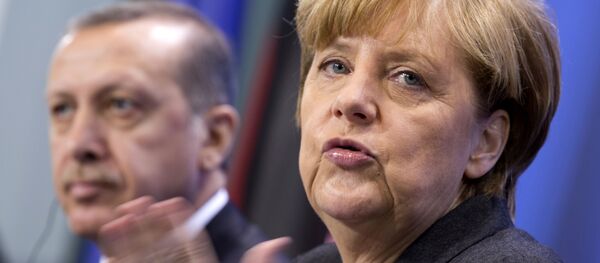Germany spent 21.7 billion euros ($25.7 billion) on refugees and asylum seekers in 2016, but experts remain divided over whether the country will eventually benefit economically from this outlay.
In July, the Chicago Booth Review published a report which asked a panel of European economic experts to consider whether Germany's refugee influx, of more than one million people since mid-2015, will benefit German citizens economically over the course of a decade.
Those who view the influx positively argue that the migrants who have arrived are a fairly skilled and young group, who will counter Germany's aging population and boost the economy by taking jobs and increasing consumer spending.
Some economists think the benefits will take more than a decade to appear, whereas others are cautious about the difficulties of integrating migrants and the potential for social unrest.
German government ministers are also pessimistic about the migrants' prospects for quick integration.

The flow of migrant has already had an impact on German consumption patterns in some ways. In July, Bloomberg reported that German pork consumption has fallen to an 11-year low, citing figures from the Bonn-based Agriculture Market Information Co.
However, it appears that migrants to Germany have spent less money on boosting the German economy than hoped.
On Monday, Germany's Wirtschaftswoche magazine reported figures from the German Bundesbank which show that last year, migrants in Germany sent home a record number of remittances. In 2016, migrants sent 4.2 billion euros ($5.0 billion) back home; up to 67 million euros ($79 million) of which was sent to Syria. The total amount exceeded the amount that migrants sent to their home countries in 2015 by almost 700 million euros.




